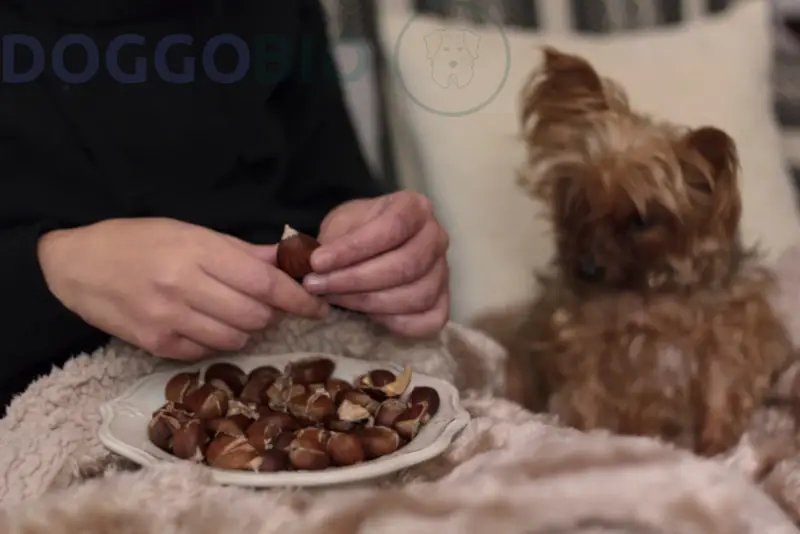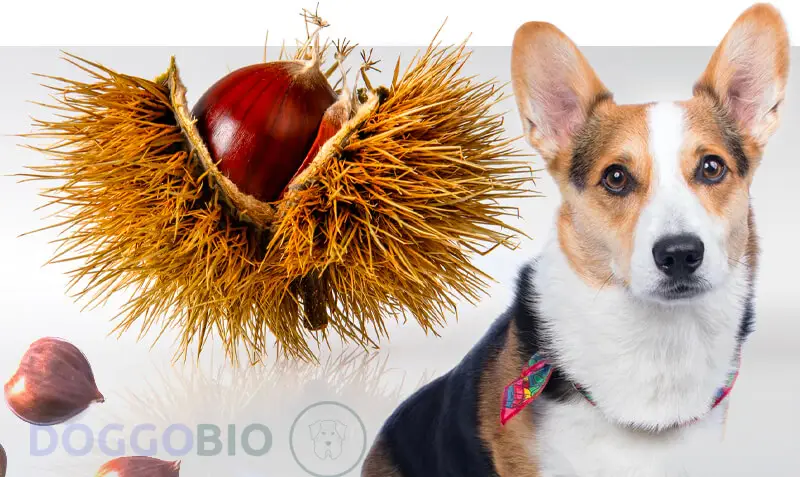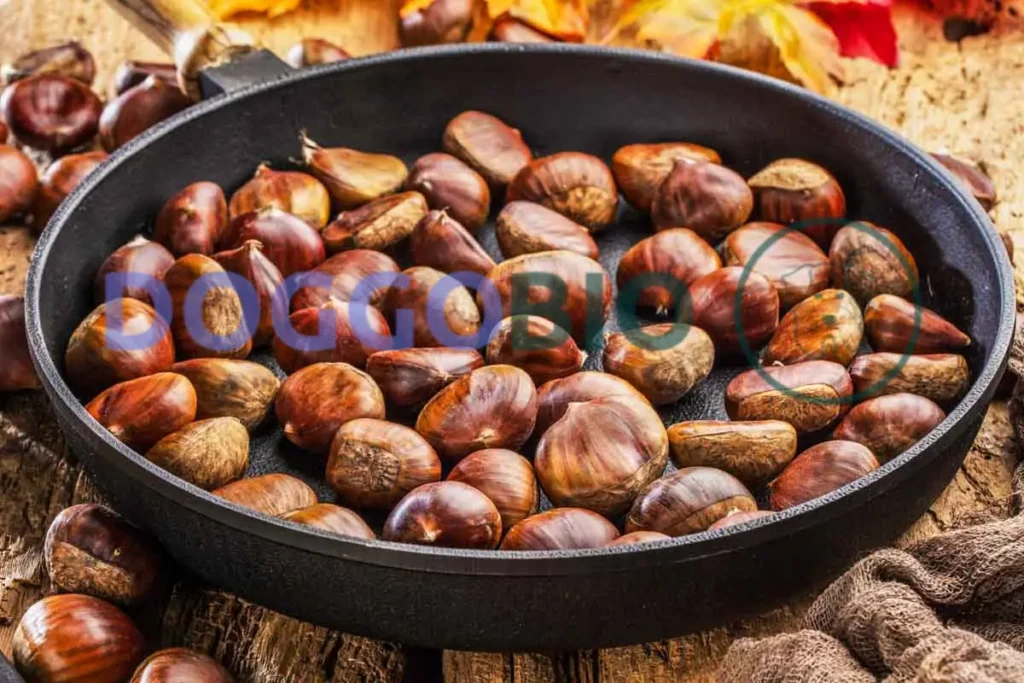Knowing what’s safe for them when sharing our snacks with our furry friends is crucial, and a common question many dog owners have is whether chestnuts are safe for dogs to eat. Chestnuts, often a favorite during the festive season, seem like a good treat for your dog.
But can dogs eat chestnuts safely? The short answer is yes, but with caution. Chestnuts are not toxic to dogs, yet they should be given in moderation and prepared correctly.
This article briefly discusses how chestnuts can fit into your dog’s diet without causing health issues.
Can Dogs Eat Chestnuts?
Yes, while chestnuts are not toxic to dogs, they are not recommended as a regular part of their diet.
- This is because chestnuts are high in carbohydrates and can cause digestive issues for dogs, especially those with sensitive stomachs.
- Additionally, chestnuts are also high in fat, which can lead to weight gain and other health problems in dogs.
Health Benefits of Chestnuts for Dogs
While chestnuts may not be the best choice for dogs to eat regularly, they can provide potential health benefits.

1.Boosting Immune System
Chestnuts contain high levels of vitamin C, which boosts the immune system. This can be beneficial for dogs, especially during cold and flu season.
2.Promoting Healthy Skin and Coat
The manganese found in chestnuts can help promote healthy skin and coat in dogs. This mineral is crucial in collagen production and essential for maintaining healthy skin and fur.
3.Providing Energy
As mentioned earlier, chestnuts are high in carbohydrates, which can provide a quick burst of energy for dogs. This can benefit active dogs or those participating in sports or agility training.
Risks of Feeding Chestnuts to Dogs
While chestnuts may have some potential health benefits for dogs, there are risks associated with feeding them to our furry friends.

1.Choking Hazard
Chestnuts are small and round, making them a choking hazard for dogs. If your dog swallows a whole chestnut, it can get stuck in their throat and cause them to choke. To prevent choking, it’s essential always to supervise your dog when giving them any food.
2.Allergic Reactions
Just like humans, dogs can also have allergies to certain foods. While chestnuts are not a common allergen for dogs, it’s still possible for them to have an allergic reaction.
If you notice any signs of an allergic reaction, such as itching, swelling, or difficulty breathing, stop giving your dog chestnuts immediately and consult your veterinarian.
3.Digestive Issues
As mentioned earlier, chestnuts are high in carbohydrates and fat, which can cause digestive issues in dogs. If your dog consumes too many chestnuts, they may experience vomiting, diarrhea, or other gastrointestinal issues.
You must monitor your dog’s intake and stop giving them chestnuts if they experience any digestive problems.
How Many Chestnuts Can Dogs Eat?
If you decide to give your dog chestnuts, limiting the amount they consume is essential. A few small pieces as an occasional treat should be fine, but too many can lead to gastrointestinal upset.
It’s best to consult your veterinarian before giving your dog any new food, including chestnuts.
When can we discontinue the use of Chestnuts?
Discontinue feeding chestnuts if your dog shows signs of allergic reactions, stomach discomfort, or if they have health issues that their consumption could exacerbate.
Alternatives to Chestnuts for Dogs

If you’re looking for a healthy and safe treat for your dog, there are plenty of alternatives to chestnuts.
Some great options include carrots, apples, and green beans. These fruits and vegetables are low in calories and provide essential nutrients for your dog.
Just be sure to always check with your vet before introducing any new food into your dog’s diet.
Some Posts You Wanna Read More
- Can Dogs Eat Edamame?
- Can Dogs Eat Capers?
- Can Dogs Eat Ginger?
- Can Dogs Eat Figs?
- Can Dogs Eat Apricots?
- Can Dogs Eat Butternut Squash?
- Can Dogs Eat Eggplant?
Frequently Asked Questions
Can dogs eat raw chestnuts?
No, it is not recommended for dogs to eat raw chestnuts. Raw chestnuts can be difficult for dogs to digest and may cause gastrointestinal issues.
Can dogs eat roasted chestnuts?
Yes, dogs can eat roasted chestnuts. There are safer for dogs to consume compared to raw chestnuts. However, they should still be given in moderation and as an occasional treat.
Can dogs eat chestnut flour?
Chestnut flour is not toxic to dogs but is not recommended as a regular part of their diet. It is high in carbohydrates and may cause digestive issues if consumed in large quantities.
Are chestnuts safe for puppies?
No, puppies have more sensitive stomachs than adult dogs, so it’s best to avoid giving them chestnuts. Stick to their regular puppy food and consult with your veterinarian before introducing new foods into their diet.
Can dogs eat chestnut shells?
No, dogs should not eat chestnut shells. They can be a choking hazard and may also cause digestive issues.
Conclusion
In conclusion, when it comes to the question, “Can Dogs Eat Chestnuts?” it’s best to be cautious.
While chestnuts are not toxic to dogs, they can be a choking hazard and are high in carbohydrates, which can upset a dog’s stomach or lead to weight gain if consumed excessively. Avoid any seasonings or toppings; only offer plain, well-cooked chestnuts in small amounts if you share them with your dog.
However, it’s crucial to prioritize a balanced and appropriate dog diet to maintain their overall health. If you have concerns, consult your veterinarian.
